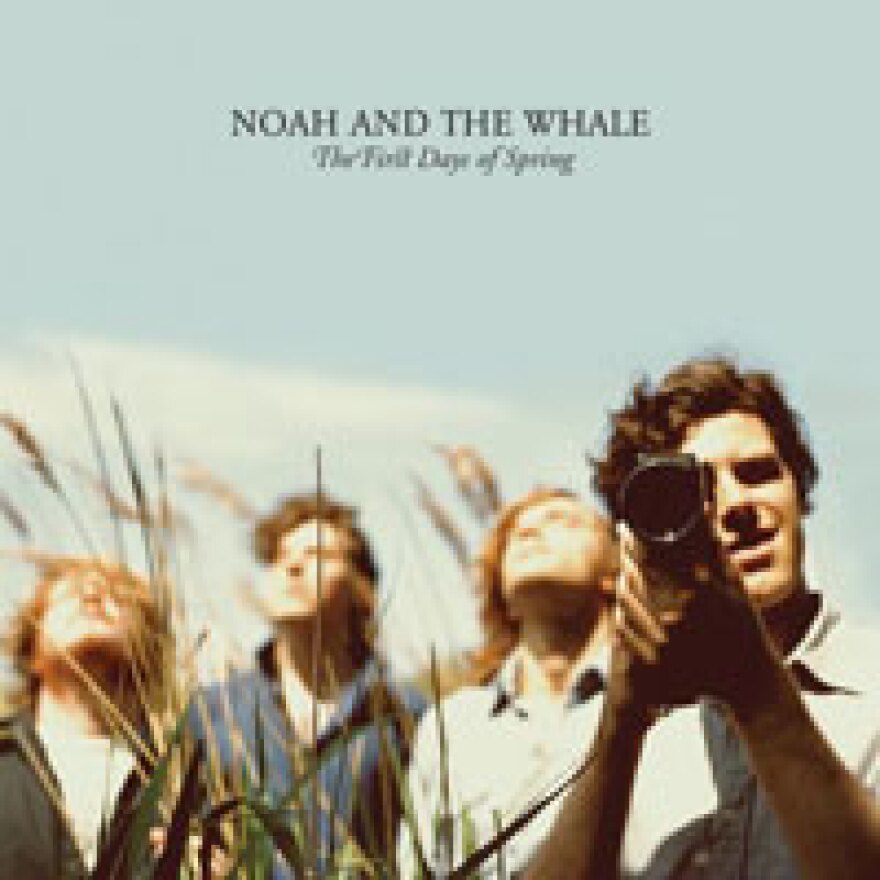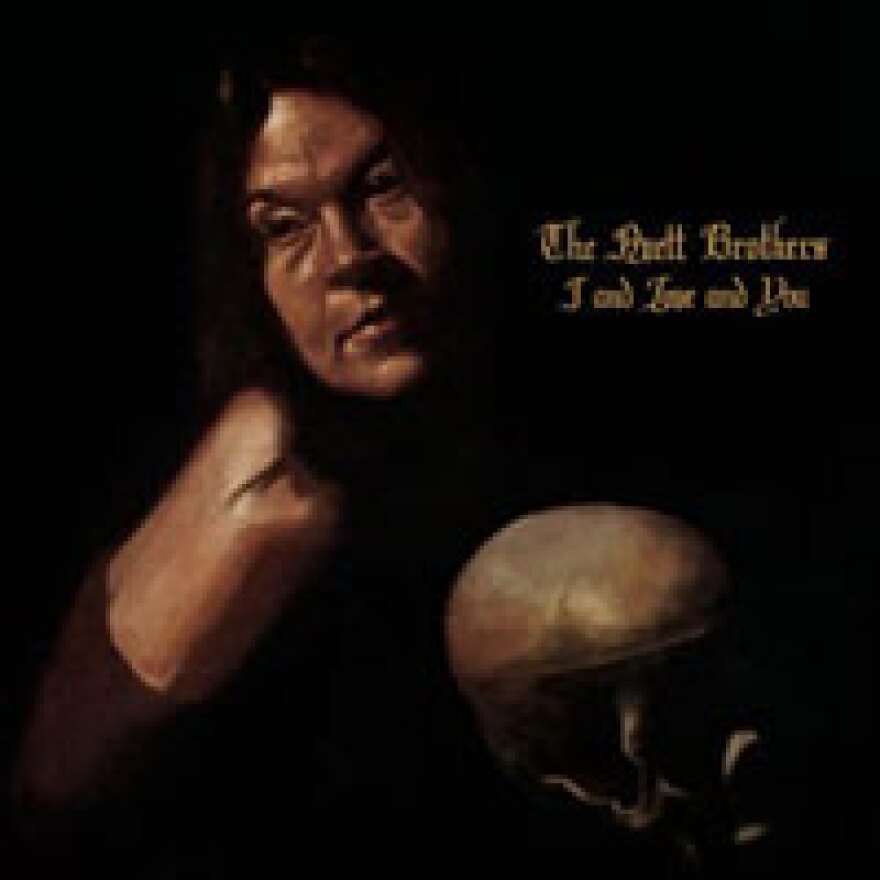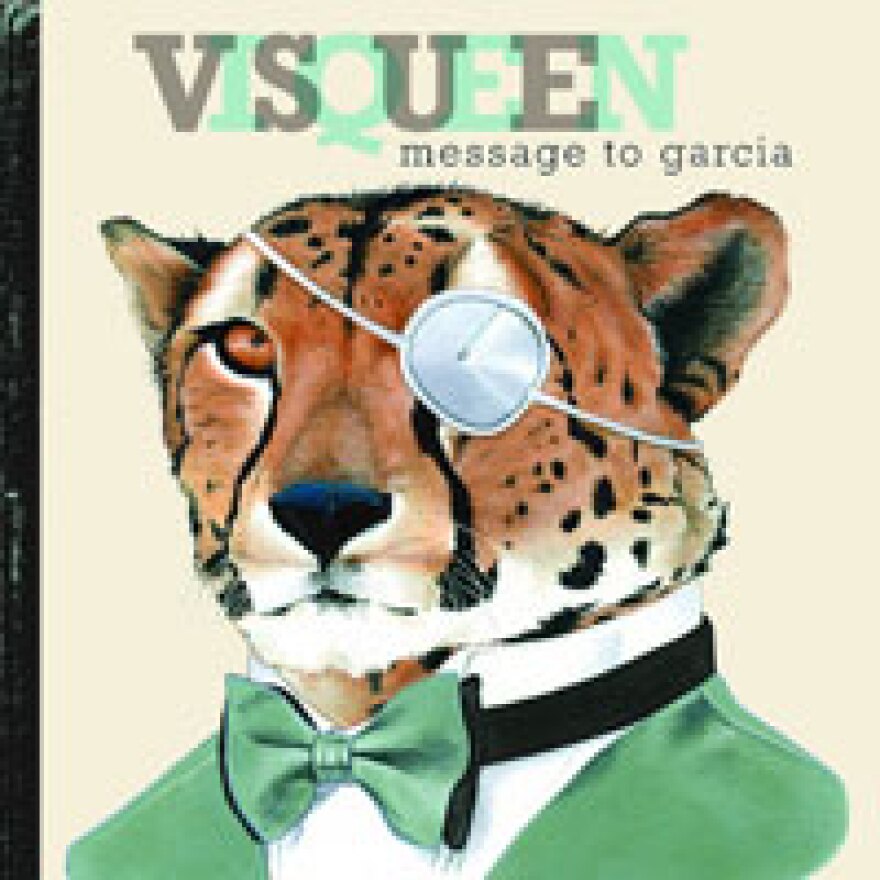Here's a novel idea: What if someone who listens to a lot of music were to compile a year-end list describing his or her 10 favorite records? A brief glance around online reveals that one or two people have already tried it, so I figured, why not join them?
That tiny handful of lists — okay, it's more like hundreds of overstuffed wheelbarrows full of lists — reveals something of a critical consensus around a bunch of titles that were far easier for me to admire than love. Grizzly Bear's Veckatimest, Animal Collective's Merriwether Post Pavilion and Dirty Projectors' Bitte Orca had several things in common: All are wildly inventive, widely beloved, creatively made marvels, and I can't recall more than a handful of words from any of them. They're worthy of recommendation, to be sure, but they didn't feel fully relatable; call me a soppy mope, but at the end of a given year, I'm far more likely to dwell on albums and songs that exude a fair bit of earned insight, even ache.
So here's my Top 10. It may be the equivalent of a single teardrop in a vast sea of year-end reflection, but the music is glorious. (Click here for more entries in NPR Music's ongoing look at 2009's best.)
All Songs Considered host Bob Boilen's Top Ten List For 2009
Monitor Mix Blogger Carrie Brownstein's Picks For The Best Music Of 2009
All Songs Considered Producer Robin Hilton's Top Ten List For 2009
More Coverage Of The Best Music Of 2009
Copyright 2024 NPR. To see more, visit https://www.npr.org.
1. Noah And The Whale

It's a little too easy to tag The First Days of Spring, the second album from the marvelous London band Noah and the Whale, as "a breakup record." It certainly serves that purpose, but it's really more of an aftermath record, from its first words ("It's the first day of spring / and my life is starting over again") to its last ("I love with my heart and I hold with my hands, but, you know, my heart's not yours"). A slow-burning masterpiece, The First Days of Spring spends every minute of its time getting to a destination, celebrating slivers of light before reeling from setbacks, then landing at a spot where the skies are still blue and your life's still your own. (Click here for NPR Music's full Noah and the Whale archive.)
2. The Avett Brothers

Seth and Scott Avett put a lot of thought into the messy mechanics of human interaction; everything, be it eternal love or bitter regret, comes equipped with darkness and light. A slickly recorded, elegantly rendered star turn, I and Love and You balances austerity (the title track, "Laundry Room") with kinetic energy ("Slight Figure of Speech," "Kick Drum Heart"), rendering both with gorgeous harmonies and clear-headed wisdom. Few pleas resonated more deeply in 2009 than the one at the start of "The Perfect Space," in which Scott Avett sings, "I wanna have friends that I can trust / who love me for the man I've become, not the man that I was." (Click here for NPR Music's full Avett Brothers archive.)
3. Bill Callahan

His voice is as distinctive as any in rock music -- deep, deadpan, weathered and so clear it hurts -- and his songs are built around stately, delicate arrangements, awash in strings and cleanly plucked guitar lines. But everything in a Bill Callahan song is a slave to his meticulously chosen words; consequently, Sometimes I Wish We Were an Eagle may be 2009's most quotable album. A single pass through its nine songs leaves behind phrases that'll haunt your dreams: "I started out in search of ordinary things." "I used to be darker, then I got lighter, then I got dark again." "I used to be sorta blind, but now I can sorta see." For someone who so often sings about a search for clarity (see also: his magnificent, long-running one-man band Smog), Callahan finds it again and again in his music. (Click here for NPR Music's full Bill Callahan archive.)
4. Wye Oak

For a band containing only two people, the Baltimore band Wye Oak makes a punishing sound: Its songs burn slowly, with a slight undercurrent of twang, but there's something devastating about every note. Part of it is the guitars, which billow and burst with a fury that seems downright accusatory. A bigger part is the words of Jenn Wasner, whose seething delivery practically leaves a mark. "I turn to smoke when you need air," she sings in one of many gripping declarations from "Take It In." The Knot is similarly unforgiving, but its ragged, loud/quiet beauty still hits like a ton of cathartic bricks. (Click here for NPR Music's full Wye Oak archive.)
5. Neko Case

Both as a solo singer and as a member of The New Pornographers, Neko Case has been consistently great for a decade and a half now -- so much so that she's starting to be taken for granted. A bracing but pretty collection of refreshingly personal songs, Middle Cyclone finds Case shape-shifting through personas with grace and ease, adopting the form of a neglected mistress ("Vengeance Is Sleeping") and a devastating storm ("This Tornado Loves You"). The album bleeds a heady mix of melancholy and charm: When she sings, "The next time you say 'forever,' I will punch you in your face," her wounded, defiant dignity hits plenty hard on its own. (Click here for NPR Music's full Neko Case archive.)
6. K'naan

K'naan's music is far more than the sum of his compelling backstory: Born amid the raging strife of Mogadishu, he moved to Toronto at age 13 and learned English by listening to hip-hop. Much is made of K'naan's hard-won authenticity -- of the way his personal history somehow gives him more of a right to gritty storytelling than other rappers possess -- but the fact is, the guy's just a phenomenal rapper with a joyfully omnivorous appetite for heartfelt music that extends well beyond hip-hop. He's as much an heir to Bob Marley as he is to Eric B & Rakim (whose music he once studied as a teenager), and it's telling that one of Troubadour's singles is titled "If Rap Gets Jealous" -- so named for the way he rejects the constrictions of any genre. Polyamory never felt so committed. (Click here for NPR Music's full K'naan archive.)
7. The Swell Season

The Swell Season's Glen Hansard knows his way around big emotions: He understands what it's like to feel insignificant and emotionally overstuffed at the same time. "I'm feeling the pull, dragging me off again," he sings at one point, adding, "I'm feeling so small against the big sky tonight." But Hansard and partner Marketa Irglova spend much of Strict Joy suffering in relative silence. The pair broke up -- romantically, not professionally -- during the making of the album, and the music that emerged from the wreckage is appropriately bruised and brooding, and unmistakably lovely. (Click here for NPR Music's full Swell Season archive.)
8. Laura Gibson

Laura Gibson seems to sing down into her own lungs, so quiet and delicate is her singing voice, but Beasts of Seasons isn't as unassuming as it might seem at first. Split into two sides -- marked "Communion Songs" and "Funeral Songs" -- the album understandably divides its time between grieving and rejoicing, but it never radically deviates from elegant, impeccably arranged uneasiness. For all its muted grace, Beasts of Seasons isn't afraid to pack a wallop into a whisper, as in "Where Have All Your Good Words Gone," in which Gibson gently twists the knife: "Do you wish you were an honest man? Do you wish you were a better man?" (Click here for NPR Music's full Laura Gibson archive.)
9. Visqueen

Visqueen was just starting to stake its claim as a Seattle power-pop juggernaut when singer Rachel Flotard took a long hiatus to care for her dying father and then embark on aid work in Southeast Asia. But Flotard returns from the time away sounding not only intact, but emboldened: Message to Garcia pays tribute to her father's memory in the form of sweetly blustery, life-affirming rock 'n' roll celebrations, enriched by frequent strings, slide guitars, horns or handclaps. One overt tearjerker ("So Long") aside, Flotard spends most of Message to Garcia turning her loss into bittersweet anthems like "Hand Me Down," which brings to mind a too-good-to-be-true hybrid of Neko Case and Joan Jett. (Click here for NPR Music's full Visqueen archive.)
10. Regina Spektor

Clever and strange, tender and warm, Regina Spektor's music benefits from her peerless phrasing, which holds up even when she starts honking like a dolphin in "Folding Chair." Though Far takes a misstep here and there, insight and ambition ooze out of the album's every pore. In "Laughing With," Spektor starts out on a serious note -- "No one's laughing at God in a hospital / No one's laughing at God in a war" -- before finding plenty of room in the universe for divine benevolence and good humor. In the remarkably charming "Eet," she reflects on the way people use music as a crutch: "You're using your headphones to drown out your mind." Which is forgivable, in this case. (Click here for NPR Music's full Regina Spektor archive.)



